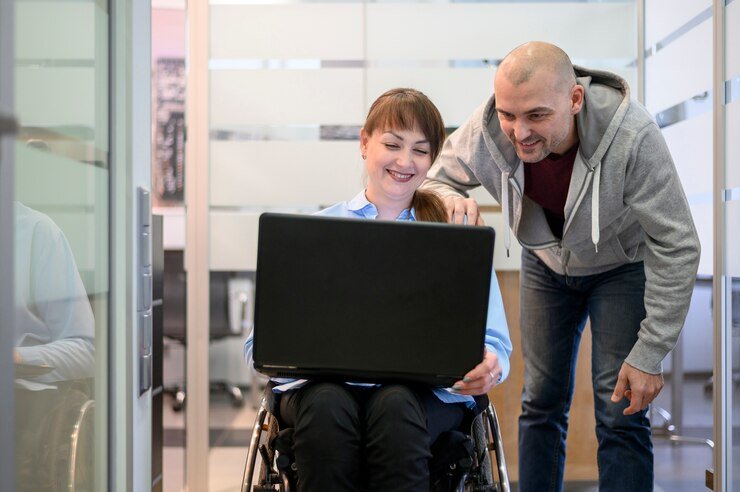I checked this book out of the library. The Amazon.com book description testified that the first-person accounts were told “with love and hope.”
A lot of the stories in this collection feature events that dehumanized the disabled person.
The word ‘Crip’ is used to talk about this movement of disability justice. Other people can use the word Crip because I won’t.
Elsewhere in an internet article a person living with a disability compared the pros and cons of viewing your first-person experience through a lens of Positivity or Negativity.
In this Forbes.com essay the author signaled that the distinction between the two views often comes down to your socioeconomic standing in society.
If you live in poverty and have a disability this could alter your frame of reference. Dealing with daily struggles you might focus on the negative parts of your life.
If you are better-off and your finances don’t limit you it might be easier to have a sunny-side up view of your disability.
What do I think? I’ve been in a frenzy of reading Disability and Social Justice first-person accounts. The next book that’s coming my way is Care Work: Dreaming Disability Justice.
The drawback to the Positivity crew’s stance according to the Forbes article is that it can be seen as being critical of disabled individuals who don’t make it the way others do who have disabilities.
My own compassion is rare. My literary agent told me once: “It’s remarkable. You pulled yourself up by your own bootstraps. Yet you have compassion for people who are unable to do that.”
The bootstrap myth is just that–a myth. “It Takes a Village” to live with a disability every day. Those of us who struggle deserve to be given help and compassion. On our terms. Not the terms of the do-gooder who decides they want to help us or thinks that we need their help.
At my job whenever I see someone come in a wheelchair I don’t ever ask: “Do you need help?” The distinction is that I ask them: “Would you like help?” This signals that I understand they are not so disabled that they can’t do things on their own if that is their choice.
As regards focusing on the Positive instead of dwelling on the Negative I’m guilty of this. Not telling anyone how hard my life is. Not expecting outsiders to understand what it’s like to have a disability.
I’m an Optimist. That is my nature. I’ve had to be an optimist, or I wouldn’t have survived what I went through.
In my life I soak up like a sponge what has come to be called “inspiration porn.”
Give me joy and cheer and hope.
The reality is that not all disabilities are equal in severity. This doesn’t matter. Whatever your disability is it’s plenty hard enough for you.
So–I wouldn’t be quick to minimize or discount what a person goes through when they are in remission or have a less chronic illness.
In the coming blog entry I want to start to talk about a topic I’ve become inflamed about: worker’s rights. I’m going to use this blog to expand in detail on what I wrote about in the Working Assets book.
It’s a fine line: who to trust to tell the personal information about your disability.
A book like Disability Visibility is necessary to bring to light the distinctive perspectives personalities and experiences of those of us who have a disability.
This article was originally posted in Working Assets Career Guide.
Christina Bruni is the author of the new book Working Assets: A Career Guide for Peers. She contributed a chapter "Recovery is Within Reach" to Benessere Psicologico: Contemporary Thought on Italian American Mental Health.
- Christina Bruni
- Christina Bruni
- Christina Bruni
- Christina Bruni







